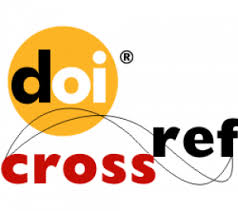E3 Journal of Business Management and Economics
E3 Journal of Business Management and Economics Vol. 3 (8) pp. 301-306, August 2012; © E3 Journals; ISSN 2141-7482
Evaluation of the performance appraisal systems in KNUST and GIMPA libraries
Akua Asantewaa Aforo1 * , Kodjo Asafo-Adjei Antwi21 Faculty of Law, Kwame Nkrumah University of Science and Technology, Kumasi, Ghana
2 Ghana Institute of Management and Public Administration, Accra, Ghana
*Corresponding Author E-mail: akuaaforo09@yahoo.com, Tel: +23302 8110024.
Accepted 15 August 2012
Abstract
Academic libraries have a performance appraisal system comprising setting of goals, feedback, participation and incentives for performance. This study aimed at evaluating the performance appraisal system in the KNUST and GIMPA libraries in Ghana and give recommendations on improving the system. Questionnaires were randomly administered to 46 staff members of these libraries. Twenty three (50%) of respondents knew that the libraries operated a formal performance appraisal system. Sixteen (34.8%) had access to documentation on the current objectives and procedures of the system. Thirty one (67.4 %) respondents on employment were given formal job descriptions of which 25 (80.6 %) were supervised daily. For 34 (73.9%) respondents, their performances were assessed and evaluated within the academic year. Thirty one (67%) had formal meetings with their supervisors on their performance. Interestingly only four individuals had ever resisted appraisal results once or sometimes during the appraisal period. Overall, 42 (91.3 %) do not find being evaluated by another person threatening. The preferred motivations were; promotion, study leave with pay, or commendation. Only 19 (41.3 %) thought the current system was trustworthy. The existing performance appraisal systems in the libraries had inadequacies which created perception of inefficiency in the appraisal process.
Keywords: Corporate goals; organizational productivity; Academic libraries; Motivation; Employee job performance.
[Download Article - PDF]




